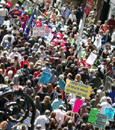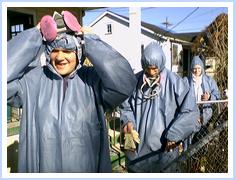ACTIVISM / HUMAN RIGHTS These are articles previously published by Toward Freedom related to this category.

Building a Political Prisoner Support Movement
Political prisoners, if largely unacknowledged, are at the crux of debates over incarceration. Their presence testifies to the ongoing legacy of social problems, which in itself is central to the cycle of crime and punishment. As the anti-prison movement continues to grow in strength and stature, the question of political prisoners demands attention because these movement veterans remain part of current endeavors for social justice.





